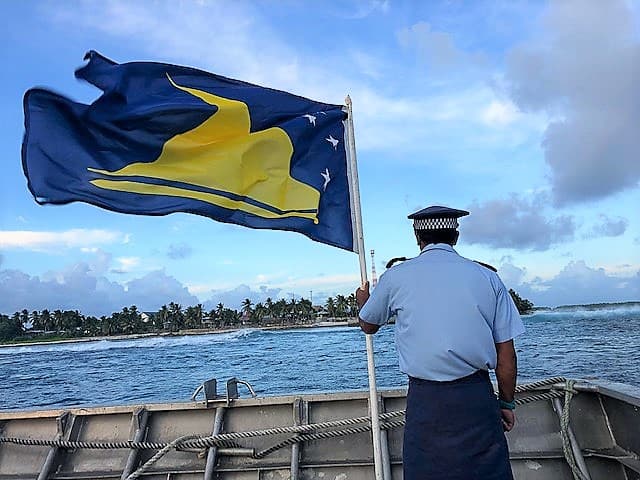For the first time in Tokelau’s history, all three atolls will take part in the same electoral process.
Voting for the 2023 general election is on January 26.
“Every election is important. It is important we have the best candidates coming through from each village,” the General Manager of the Office of Tokelau, Aukusitino Vitale said.
In 2013 a law was brought in to try and unify the systems, but Nukunonu opted out until now.
The following year the first election under the new arrangement took place.
It is of utmost importance that the chiefs in each village feel comfortable with the system, Vitale said.
“Fortunately for us, Nukunonu has agreed to abide by the new system. We have also changed the rule to allow Nukunonu candidates to go for more than one post. So, each village is being respected to make their own decision on candidates.
“I don’t know what that will bring about. But we are hoping that it will bring about the best candidates,” he said
Previously, Nukunonu had concerns around the election process as candidates could not put their hand up for multiple roles, Vitale said.
Those whose names were put forward for the Faipule (Cabinet Minister) position could not also be in the running for the Pulenuku (Mayor) role. With just under 500 people on Nukunonu, which is Tokelau’s largest Atoll, there were concerns around some of the best candidates being ruled out of positions they would be great for.
“The new rule now allows those people to go for the Faipule; they can also go for the Pulenuku, and they can also go as representative of Taupulega (council) in making up the numbers for the candidates.
“That is the change in the rule, which has enabled Nukunonu to participate, because they want their best candidate to get jobs or to be elected,” he said.
There are three atolls that make up Tokelau and an office in Apia, Samoa. This year public servants in Apia are included in the process meaning there are to be four voting locations.
“The three villages, plus Apia, this system is managed by local committees on the day,” Vitale said.
“Each village, has their own committees who would run the election at each village on the day
“Normally, the procedure is that we elect the Faipule first. Then, once that is concluded, we elect the Pulenuku and then we elect members of parliament or members of the general Fono, which includes representatives from the women’s group, as well as the men’s group,” Vitale said.
Candidate numbers are dependent on the latest population count.
Nukunonu is to have six MPs, and Atafu and Fakaofo will both have seven. Those figures include the Faipule and the Pulenuku, with the rest of the roles made up with General Fono delegates.
“Each village is entitled to one candidate per 100 people. If you have a number like 450 then you’re entitled to another one. So, any anything above 50, you get an extra as well.
“That is the number of candidates per Island as based on the last population count.”
Roles being voted on
– Faipule, or Cabinet Minister, there is one on each atoll.
– Pulenuku, or Mayor, one on each atoll.
– Fafine or women’s group member, one on each atoll.
– Taulelea or men’s group member, one on each atoll.
– General Fono delegates. The rest of the MPs on each atoll are made up with delegates.
Once the votes are counted the new MPs will get to work.
“There are a lot of projects that we have with the New Zealand government. So, I think it’s important that we have a government that will push those projects along with things like the airstrips and look at our borders. Now, given that it is one of the challenges in getting essential workers to Tokelau, that will be the challenge for the new government,” Vitale said.
Tokelau is a New Zealand dependency. Following the election, the new government is expected to discuss a pathway to self-determination.
“That conversation may become a priority in the next three years. The conversation has already been approved by the General Fono to start in the villages. That would be one of the areas also that the new government will be looking at, given the 2026 (election) is only around the corner.
“There is a hope that when we celebrate our 100th anniversary, when New Zealand became our governing body, that we will come to New Zealand with options for Tokelau to look at as part of its pathway towards self-determination,” Vitale said.
